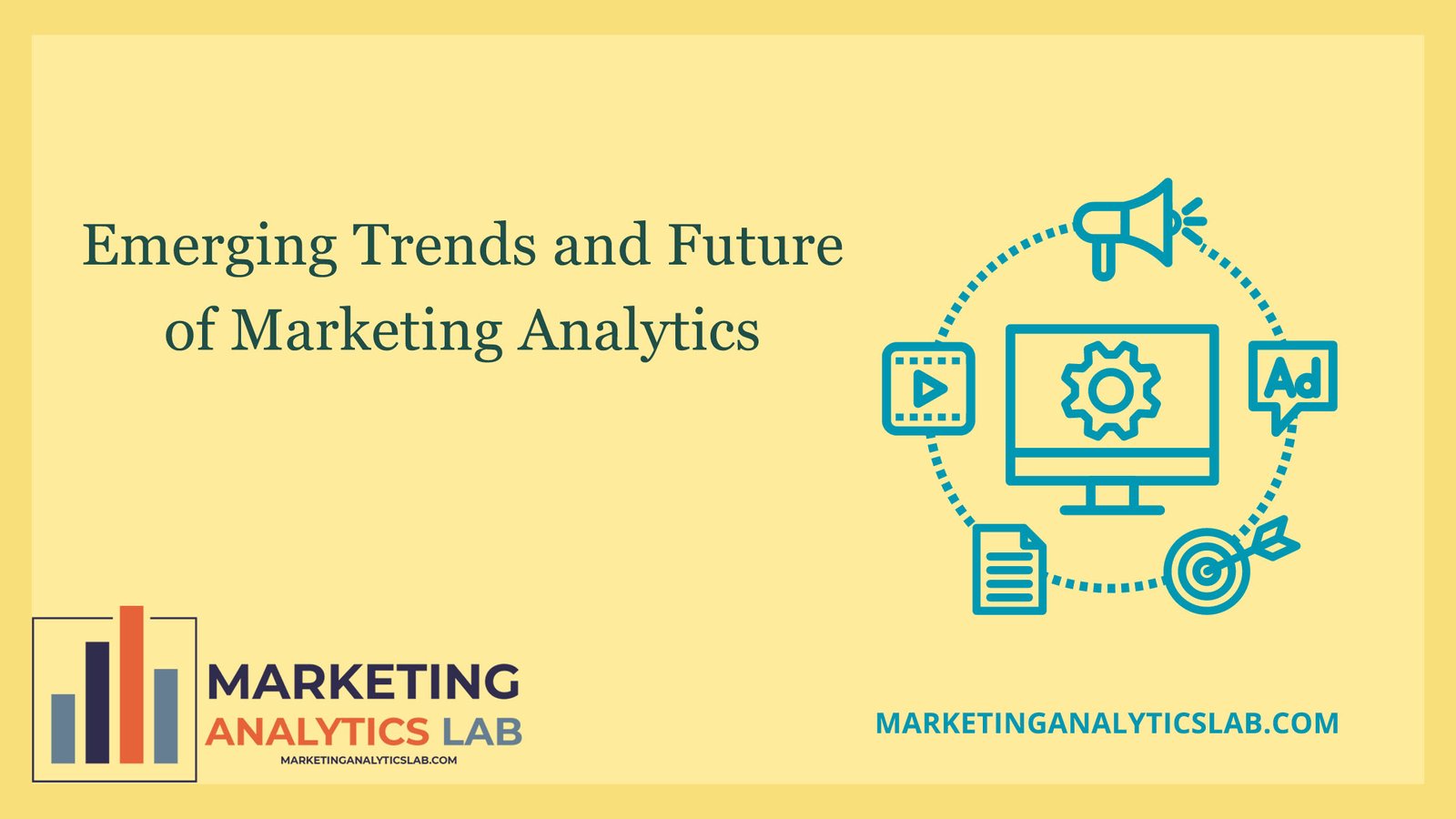Emerging Trends and Future of Marketing Analytics
Marketing analytics is evolving rapidly, driven by technological advancements, changing consumer behaviors, and the growing importance of data-driven decision-making. As businesses strive to stay ahead in a competitive landscape, understanding emerging trends and the future direction of marketing analytics is crucial. This article explores the latest trends shaping marketing analytics and forecasts the future developments in the field.
Emerging Trends in Marketing Analytics
- Artificial Intelligence and Machine Learning:
- Predictive Analytics: AI and machine learning algorithms enhance predictive analytics, enabling businesses to forecast trends, customer behaviors, and market conditions with greater accuracy.
- Personalization: AI-driven tools allow for advanced personalization, tailoring marketing messages and offers based on individual customer data and interactions.
- Automated Insights: Machine learning models can automate the generation of insights from large data sets, reducing the need for manual analysis and speeding up decision-making.
- Customer Data Platforms (CDPs):
- Unified Customer Profiles: CDPs aggregate data from various sources to create a comprehensive, single view of each customer, improving segmentation and personalization.
- Real-Time Data: CDPs enable real-time data processing and activation, allowing businesses to respond quickly to customer interactions and trends.
- Advanced Attribution Models:
- Multi-Touch Attribution: Evolving beyond last-click attribution, multi-touch models evaluate the impact of each touchpoint in the customer journey, providing a more accurate view of marketing effectiveness.
- Algorithmic Attribution: Algorithmic models use data-driven approaches to assign credit to various touchpoints based on their contribution to conversions.
- Integrated Tracking: Omnichannel analytics provide a holistic view of customer interactions across multiple channels and platforms, ensuring a consistent and seamless experience.
- Cross-Channel Optimization: Businesses can optimize their marketing strategies by understanding how different channels interact and contribute to overall performance.
- Data Privacy and Ethics:
- Compliance: With increasing regulations like GDPR and CCPA, ensuring data privacy and compliance has become a top priority. Businesses must adopt transparent practices and secure customer consent.
- Ethical Analytics: Ethical considerations in data collection and usage are gaining importance, with a focus on responsible data handling and avoiding manipulative practices.
- Real-Time and Predictive Analytics:
- Immediate Insights: Real-time analytics allow businesses to make data-driven decisions and respond to changes instantly, enhancing agility and responsiveness.
- Predictive Models: Predictive analytics helps in anticipating future trends, customer behaviors, and potential challenges, enabling proactive strategies.
- Natural Language Processing (NLP):
- Sentiment Analysis: NLP techniques analyze customer feedback, reviews, and social media conversations to gauge sentiment and identify emerging trends.
- Chatbots and Virtual Assistants: NLP powers conversational AI tools that enhance customer interactions and provide valuable data for analysis.
- Integration of IoT Data:
- Connected Devices: Data from Internet of Things (IoT) devices provides new insights into customer behavior and product usage, enabling more precise targeting and personalization.
- Smart Analytics: IoT data combined with analytics can offer real-time insights into customer interactions with connected products and services.
Future Directions in Marketing Analytics
- Greater Emphasis on Data Quality and Integration:
- Data Governance: Future advancements will focus on improving data quality, governance, and integration to ensure accuracy and consistency across systems.
- Unified Data Systems: Businesses will invest in technologies that integrate data from various sources, creating a unified view and enhancing analytics capabilities.
- Augmented Analytics:
- Self-Service Analytics: Augmented analytics tools will empower non-technical users to perform complex analyses and generate insights with minimal assistance.
- AI-Augmented Insights: AI will further enhance analytics by providing augmented insights and recommendations based on automated analysis.
- Enhanced Personalization and Customer Experience:
- Hyper-Personalization: Future personalization efforts will move towards hyper-personalization, where marketing strategies are tailored to individual preferences and real-time interactions.
- Experience Optimization: Businesses will focus on optimizing the entire customer experience based on insights gained from advanced analytics.
- Integration of Advanced Technologies:
- Blockchain: Blockchain technology may be used to enhance data security, transparency, and integrity in marketing analytics.
- 5G Technology: The advent of 5G will enable faster data processing and real-time analytics, enhancing the effectiveness of mobile and IoT-based marketing strategies.
- Enhanced Customer Journey Mapping:
- Dynamic Journeys: Customer journey mapping will evolve to capture dynamic and multi-touch interactions, providing a more accurate view of the customer experience.
- Journey Analytics: Advanced analytics will allow for more detailed analysis of customer journeys, identifying key touchpoints and optimizing interactions.
- Focus on Ethical Data Use and Transparency:
- Ethical Standards: There will be a growing emphasis on ethical standards and practices in data collection, usage, and privacy.
- Transparency: Brands will prioritize transparency in how data is collected, used, and shared, building trust with customers.
- Greater Integration of Offline and Online Data:
- Omnichannel Insights: Integrating offline and online data sources will provide a more comprehensive view of customer behavior and marketing effectiveness.
- Offline Attribution: Future developments will focus on improving the accuracy of offline attribution and integrating it with digital analytics.
- Evolution of Marketing Metrics and KPIs:
- New Metrics: The future will see the emergence of new marketing metrics and KPIs that reflect evolving customer behaviors and digital interactions.
- Value-Based Metrics: Metrics focusing on customer lifetime value, engagement, and retention will gain prominence over traditional performance metrics.
- Conclusion
The field of marketing analytics is undergoing rapid transformation, driven by advancements in technology and evolving consumer expectations. Emerging trends such as AI, CDPs, and omnichannel analytics are reshaping how businesses approach data and insights. Looking ahead, the focus will be on enhancing data quality, integrating advanced technologies, and prioritizing ethical practices.
To stay competitive, businesses must adapt to these trends, invest in new technologies, and continuously optimize their analytics strategies. By embracing the future of marketing analytics, companies can drive more effective marketing, enhance customer experiences, and achieve better business outcomes in an increasingly data-driven world.

